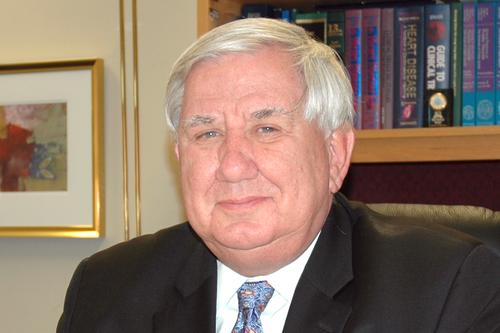
There are 16,000 heart attacks and strokes in Minnesota every year, with cardiovascular disease being the leading cause of death for both men and women. Many people take a daily aspirin to prevent a first heart attack or stroke.
Russell Luepker with the University of Minnesota answers questions about risk factors for heart attacks and strokes, the health benefits of daily aspirin use and who should take aspirin daily for prevention.
Q: What are the risk factors for heart attacks and strokes?
Dr. Luepker: The major risk factors include high blood pressure, elevated blood cholesterol, cigarette smoking and diabetes. There are many other risk factors including obesity, physical activity and triglycerides. A previous heart attack or stroke also significantly increases the likelihood of a second event.
Q: What are the health benefits of taking one aspirin per day?
Dr. Luepker: Aspirin for the prevention of heart attacks and strokes has been well-studied over many years. People who take aspirin daily have 10-15 percent fewer heart attacks or strokes. This is due to the anti-clotting effects of aspirin. Aspirin use also increases the likelihood of bleeding, such as from stomach ulcers. If this is a side effect, then aspirin should not be used in people with a history of ulcers or other bleeding disorders.
Q: In consultation with their physician, who should take one aspirin per day?
Dr. Luepker: Appropriate aspirin use requires discussion with one's physician. Men and women ages 50-69 who are at increased risk of heart attack and stroke because of other risk factors should have this discussion. Individuals who have had a previous heart attack or stroke should also discuss aspirin use with their physician for the prevention of a second event.
Q: What is the recommended dosage and type of aspirin that is commonly prescribed?
Dr. Luepker: Low-dose aspirin or baby aspirin is recommended. Enteric coated aspirin is thought by some to reduce ulcers but this is debated. Larger doses, such as adult size aspirin (325 mg), are also effective but have more side effects than low-dose aspirin (81 mg).
Q: What are you doing to promote awareness about heart health including daily aspirin use?
Dr. Luepker: Many people take low-dose aspirin as the result of talking with their physician. However, because aspirin is widely available without a prescription, there are some who take it unnecessarily due to not being at high risk for heart attack or stroke. The University of Minnesota’s Ask About Aspirin Campaign uses media and training of clinic personnel to encourage people to have a discussion with their physician to find out if aspirin is right for them.
Russell Luepker M.D., M.S., is a professor in the School of Public Health and the Medical School who leads the “Ask About Aspirin” campaign. His areas of expertise include heart health and cardiovascular epidemiology and prevention.
- Categories:
- Health




